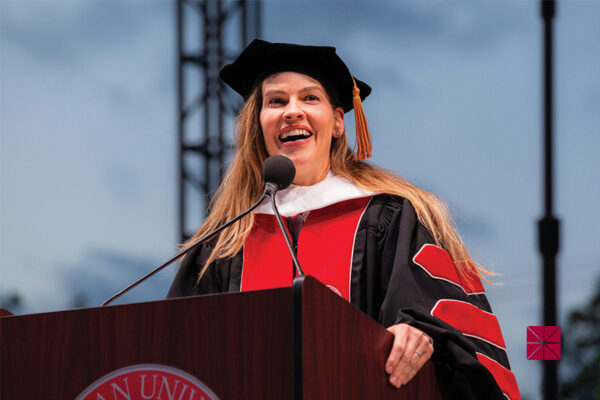Chapman University professor and acclaimed urbanist, Joel Kotkin’s groundbreaking housing report “Blame Ourselves, Not Our Stars” reveals alarming housing trends, including a link between housing prices and declining fertility rates. He also pitches solutions for California.
Keeping families in California is critical to the state’s economy and workforce, yet the state has seen its fertility rate sink to the ninth lowest in the nation in 2020, says the report which confirms the strong association between housing prices and the declining fertility rates.
“Without changes in housing policies, California’s projected population of 60 million by 2050 has been revised to 44.2 million by 2060, a significant decrease,” according to the report by Kotkin and coauthor Wendell Cox.
By uncovering the reasons behind the mass exodus of millennials and presenting practical solutions, the report calls for urgent attention to California’s housing crisis and offers a path toward a more sustainable and inclusive future.
Key Takeaways:
- 20 percent of California’s wealth is concentrated in just 30 zip codes, representing a mere 2 percent of the population.
- California ranks 49th of 50 states in terms of home-ownership. Only 55.9% of Californians own their home.
- Migration out of state is driven by housing costs, targeting mostly millennials.
- As a last alternative to leaving California, young families head to the Inland Empire for more affordable housing.
- Despite its progressive image, the state’s housing policies disproportionately impact minorities, immigrants, and young people, leading to lower real incomes and high poverty.
“No issue plagues Californians more than the high cost of housing. By almost every metric — from rents to home prices — Golden State residents suffer the highest burden for shelter of any state in the continental U.S.,” Kotkin argues.
The report shatters stereotypes, revealing how California’s progressive ideals have paradoxically hit marginalized communities, immigrants, and young people the hardest, resulting in their struggles with real income and a significant migration from the state. This policy failure, compared to Florida and Texas, exposes weakness in Gov. Gavin Newsom and the approach from Sacramento, potentially impacting Newsom’s rumored presidential ambitions, Kotkin adds.
Much of this is self-inflicted, says Kotkin. “Urban containment refers to policies and regulations implemented by the state of California to control urban sprawl and preserve open space. While the stated intention behind these policies is to protect the environment and promote sustainable development, they have inadvertently contributed to the state’s high housing costs,” according to the report.
The current housing policy is reshaping California’s demographics as workers leave in their 20s and 30s seeking a better life elsewhere. Over the past two decades, California has lost 3.5 million domestic migrants, accounting for 8.9 percent of the state’s population.
Kotkin and Cox propose several solutions. In addition to regulatory reform, they propose setting up a : Housing Opportunity Areas (HOAs) for inland areas. We also should encourage such environmentally friendly policies as promoting remote work and planning suburbs in a more sustainable way, as is being done in developments such as Ontario Ranch in San Bernardino County.
About Chapman University
Founded in 1861, Chapman University is a nationally ranked private university located in Southern California. Chapman is categorized by the Carnegie Classification as an R2 “high research activity” institution and offers personalized education to more than 10,000 undergraduate and graduate students. The campus has produced a Rhodes Scholar, been named a top producer of Fulbright Scholars, and hosts a chapter of Phi Beta Kappa, the nation’s oldest and most prestigious honor society. Based in the city of Orange, Chapman also includes the Harry and Diane Rinker Health Science Campus in Irvine. In 2019, the university opened its 11th college, Fowler School of Engineering, in its newest facility, Keck Center for Science and Engineering. Learn more about Chapman University: www.chapman.edu.
###
Media Contacts:
Cerise Valenzuela Metzger, Director of Public Relations | cmetzger@chapman.edu | 714-289-3143
Carly Murphy, Public Relations Coordinator | carmurphy@chapman.edu | Desk: 714-289-3196 | Mobile: 714-497-9683




